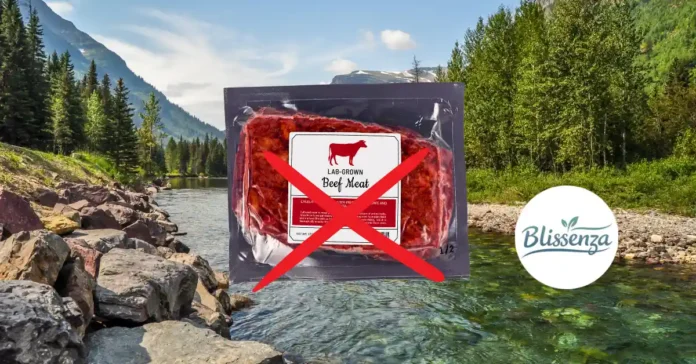In a move highlighting the growing tensions between food innovation and tradition, Montana and Indiana have become the latest U.S. states to take action against lab-grown meat. On May 1, Montana Governor Greg Gianforte signed HB 401 into law, a bill introduced by State Representative Braxton Mitchell, Chairman of the Montana House Agriculture Committee, which bans the manufacture, sale, and distribution of lab-grown meat—a product grown from animal cells in a lab without raising livestock.
Meanwhile, Indiana took a different approach: on May 6, Governor Mike Braun signed HB 1425, imposing a two-year moratorium on these products from July 1, 2025, to June 30, 2027, with fines of up to $10,000 for violations (1). Following the moratorium, Indiana will require lab-grown meat products to be labeled as “This is an imitation meat product,” a measure aimed at providing clarity for consumers, according to State Representative Beau Baird.
Montana now joins states like Mississippi, Alabama, and Florida, which have already enacted outright bans, while Nebraska and others are exploring similar legislation, though they face pushback from some ranchers and agricultural groups who prefer to compete without government intervention.
Lab-grown meat, approved for sale in the U.S. by the Department of Agriculture (USDA) since June 2023 (2), has been championed by companies like UPSIDE Foods as a sustainable alternative that reduces the environmental impact of traditional livestock farming. However, critics, such as the Center for the Environment and Welfare, point to the lack of long-term studies on its nutritional and health impacts, as well as ethical concerns (3). In Florida, for instance, UPSIDE Foods has launched a legal battle against the state’s ban, arguing it violates free-market principles and restricts consumer choice (4).
This debate isn’t unique to the U.S. As lab-grown meat begins to appear on supermarket shelves across countries from Europe to Asia, regulations and public opinions are expected to evolve rapidly in the coming years. That’s why we believe it’s vital to stay informed and engage in this global conversation.
The Wisdom of Nature
We advocate for a return to natural, traditional foods, not because we reject innovation, but because true wellness starts with what nature has provided for millennia. Lab-grown meat may seem like a modern solution, but its production raises questions about its long-term effects on our bodies and ecosystems.
Choosing fresh, sustainably raised foods in harmony with the earth not only nourishes our bodies with essential nutrients but also honors our connection to nature and the cultural traditions that have sustained generations.
In future articles, we’ll dive deeper into lab-grown meat, its implications, and how to prepare for its growing presence in supermarkets, not just in the U.S., but worldwide. For now, we invite you to reflect: health isn’t just about what we eat, but how we connect with our environment.
At Blissenza, we believe choosing natural options means choosing long-term well-being, for you and the planet.

